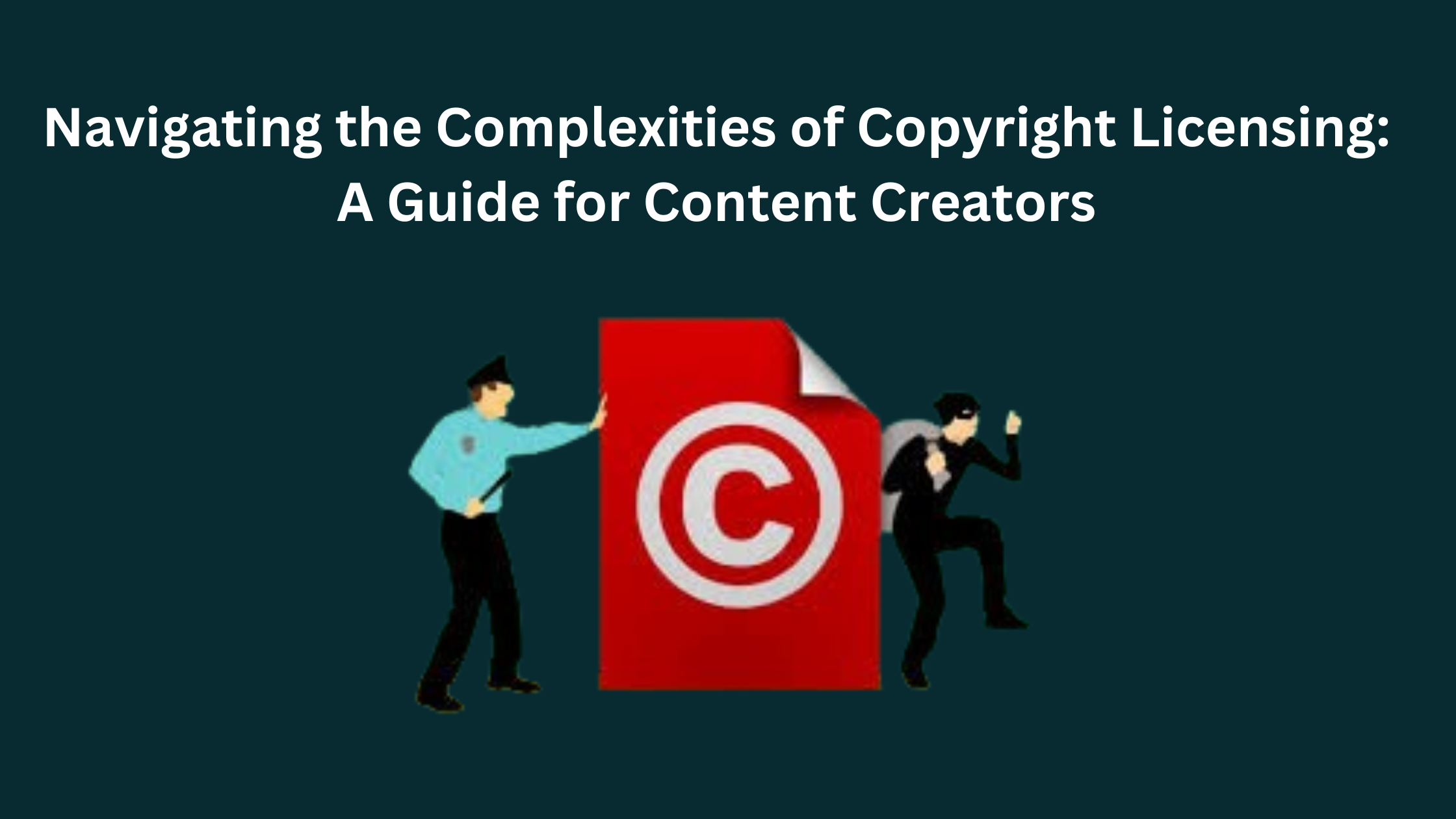In the digital age, content creation is more vibrant than ever. From writers and musicians to filmmakers and designers, creators are producing original works that have immense value. However, with the increasing demand for content comes the need to protect intellectual property through copyright licensing. This guide will help content creators navigate the intricacies of copyright licensing, ensuring their work is both protected and monetized effectively.
Additionally, we’ll explore key aspects such as copyright registration in Delhi, copyright consultants in Delhi, and copyright registration online in Delhi to provide a comprehensive understanding of how creators can safeguard their rights in India.
What is Copyright Licensing?
Copyright licensing is a legal agreement that allows the owner of a copyrighted work (the licensor) to grant permission to another party (the licensee) to use the work under specific terms and conditions. This agreement ensures that the creator retains ownership of their work while allowing others to use it for various purposes, such as reproduction, distribution, or public display.
For instance, a musician may license their song to a film production company for use in a movie, or an author may license their book for adaptation into a screenplay.
Why Copyright Registration is Essential for Licensing
Before entering into any licensing agreement, it is crucial for content creators to register their works under copyright law. Copyright registration in Delhi provides legal recognition of your ownership, making it easier to enforce your rights in case of infringement.
Here are some key benefits of copyright registration:
- Legal Protection: Registered works are protected under the Copyright Act, 1957, providing creators with exclusive rights over their content.
- Proof of Ownership: Copyright registration serves as evidence of ownership, making it easier to resolve disputes.
- Monetization Opportunities: Registered copyrights can be licensed or sold, opening up new revenue streams for creators.
How to Register Copyright Online in Delhi
The process of copyright registration online in Delhi is straightforward and can be completed through the official website of the Copyright Office. Here’s a step-by-step guide:
- Application Submission: Fill out the copyright registration form online with all the necessary details about your work.
- Payment of Fees: Pay the applicable registration fee based on the type of work you’re registering.
- Examination and Objections: The Copyright Office will examine your application, and any objections raised will need to be addressed.
- Registration Certificate: Once the application is approved, you’ll receive a copyright registration certificate, confirming your ownership.
The Role of Copyright Consultants in Delhi
Navigating copyright laws and registration processes can be complex. This is where copyright consultants in Delhi come into play. These experts provide valuable guidance on:
- Filing Copyright Applications: Ensuring your application is complete and accurate.
- Drafting Licensing Agreements: Creating comprehensive licensing agreements that protect your interests.
- Handling Infringement Cases: Advising on legal actions in case of copyright infringement.
Working with copyright registration consultants in Delhi can save creators time and effort, ensuring their rights are adequately protected.
Types of Copyright Licenses
There are various types of copyright licenses that content creators can explore, depending on their needs:
- Exclusive License: The licensee gains exclusive rights to use the copyrighted work, and the licensor cannot grant the same rights to anyone else.
- Non-Exclusive License: The licensor can grant rights to multiple licensees, allowing broader use of the work.
- Public License: A license that allows anyone to use the copyrighted work under certain conditions, such as Creative Commons licenses.
- Sublicense: The licensee has the right to grant licenses to third parties.
Key Elements of a Copyright Licensing Agreement
A well-drafted copyright licensing agreement is essential to protect both the licensor and the licensee. Here are some critical elements to include:
- Scope of License: Clearly define what rights are being granted, such as reproduction, distribution, or public performance.
- Territory and Duration: Specify where and for how long the licensee can use the copyrighted work.
- Royalty and Payment Terms: Outline the financial terms, including royalties, upfront fees, or profit-sharing arrangements.
- Quality Control: Include provisions to ensure the licensed work is used appropriately and maintains its integrity.
- Termination Clause: Specify the conditions under which the agreement can be terminated.
Protecting Your Rights as a Content Creator
To ensure your rights are protected when entering into a copyright licensing agreement, follow these best practices:
- Register Your Work: Ensure your work is registered with the Copyright Office to establish legal ownership.
- Consult with Experts: Work with copyright consultants in Delhi to draft licensing agreements and navigate legal processes.
- Monitor Usage: Keep track of how your licensed works are being used to ensure compliance with the agreement.
- Take Legal Action if Necessary: Be prepared to enforce your rights in case of infringement.
Conclusion
Copyright licensing offers content creators a valuable opportunity to monetize their work while retaining ownership. By ensuring proper copyright registration in Delhi and seeking guidance from copyright consultants in Delhi, creators can navigate the complexities of copyright laws with confidence. Whether you’re a writer, musician, filmmaker, or designer, understanding copyright licensing is essential to protect and maximize the value of your creative efforts.

Leave a Reply